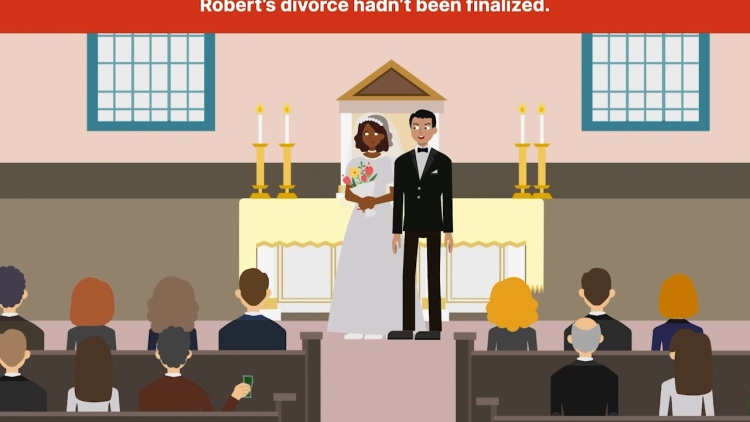Ceja v. Rudolph & Sletten, Inc.
California Supreme Court
302 P.3d 211 (2013)

- Written by Sean Carroll, JD
Facts
Nancy Ceja (plaintiff), claiming to be Robert Ceja’s putative spouse, filed a wrongful-death action against Rudolph & Sletten, Inc. (Rudolph) (defendant), after Robert’s death. Rudolph argued that Nancy did not have standing to bring the wrongful-death suit because the dissolution of Robert’s previous marriage had not been finalized when he and Nancy held their wedding. Rudolph filed a motion for summary judgment. Under California law, a decedent’s putative spouse could bring a wrongful-death suit if the putative spouse believed in good faith that the marriage to the decedent was valid. Rudolph presented evidence that Robert and Nancy had incorrectly stated on their marriage license that Robert had not been married previously. Nancy had signed the license. Rudolph thus claimed that Nancy did not meet the good-faith requirement under the putative-spouse statute. Nancy responded that she was unaware that Robert’s previous marriage had not been dissolved by the time of their wedding because Robert had refused to discuss the issue. Nancy also stated that she had not read the marriage license but had simply signed it after Robert filled it out. Nancy stated that she acted at all times as though her marriage with Robert was valid, and that she was unaware that it was not. The trial court granted Rudolph’s motion for summary judgment. The court of appeal reversed, and Rudolph petitioned for review.
Rule of Law
Issue
Holding and Reasoning (Baxter, J.)
What to do next…
Here's why 899,000 law students have relied on our case briefs:
- Written by law professors and practitioners, not other law students. 47,000 briefs, keyed to 994 casebooks. Top-notch customer support.
- The right amount of information, includes the facts, issues, rule of law, holding and reasoning, and any concurrences and dissents.
- Access in your classes, works on your mobile and tablet. Massive library of related video lessons and high quality multiple-choice questions.
- Easy to use, uniform format for every case brief. Written in plain English, not in legalese. Our briefs summarize and simplify; they don’t just repeat the court’s language.





